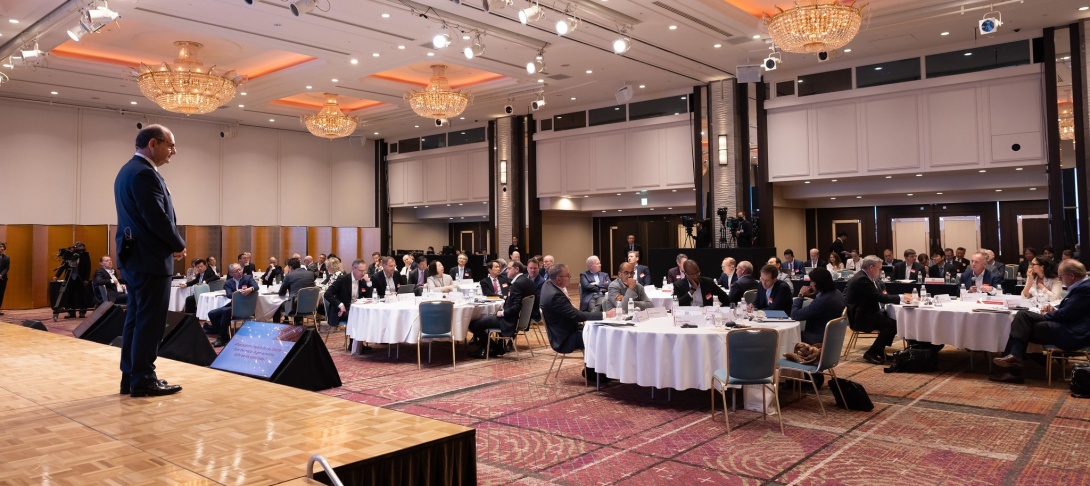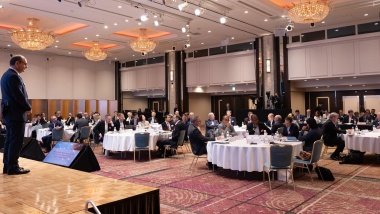Hosted by Nippon Life and Tokio Marine
The Geneva Association’s 2024 General Assembly took place amid great change, uncertainty and promise. Elections are taking place in more than 60 countries this year. Massive technological transformation is underway. The impacts of climate change are mounting. Longevity challenges are escalating. Discussions in Kyoto centred on these topics and their implications for insurers.
Opening remarks: Lee Yuan Siong
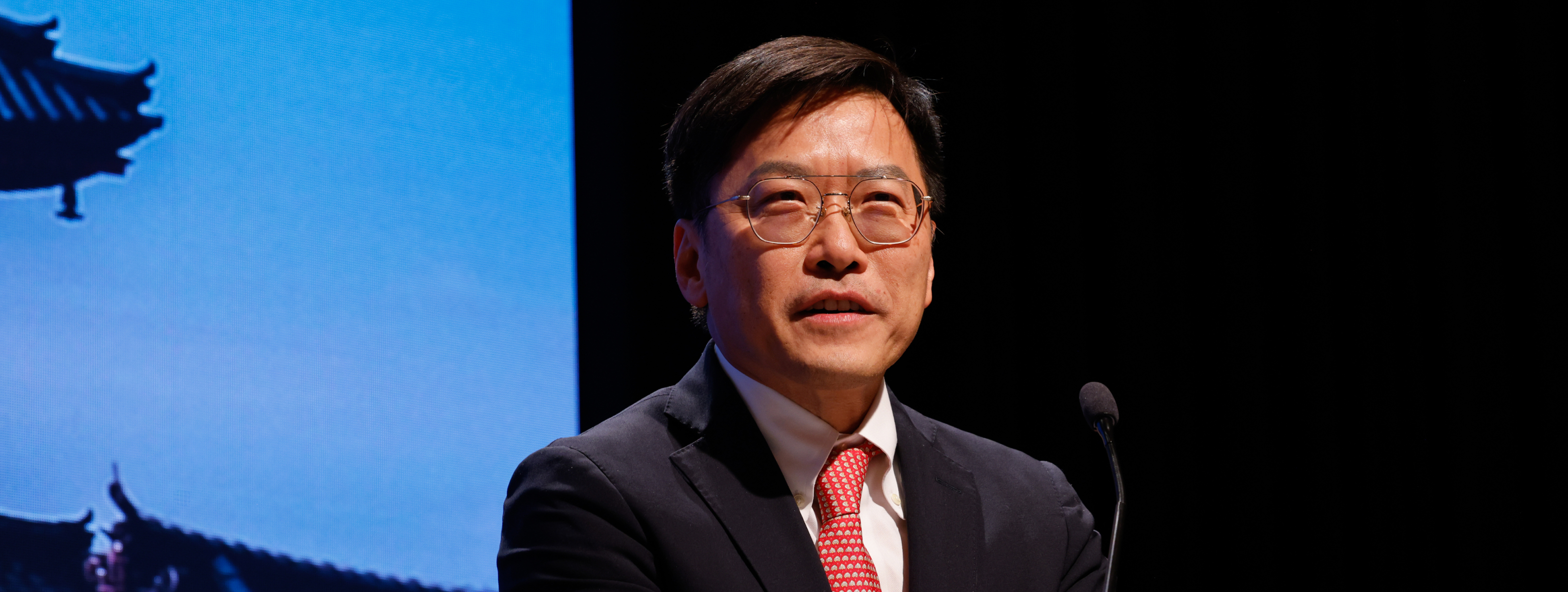 Lee Yuan Siong, Group Chief Executive & President, AIA, and Chairman, The Geneva Association
Lee Yuan Siong, Group Chief Executive & President, AIA, and Chairman, The Geneva Association
The Geneva Association has set a solid research agenda for the next two years that focuses on the most pressing challenges facing the insurance industry. Amplifying the messages of this research to broaden understanding of how insurance can help address key societal challenges and increasing engagement with regulators and industry bodies will be central to the organisation’s strategy in the coming years.
Update on The Geneva Association
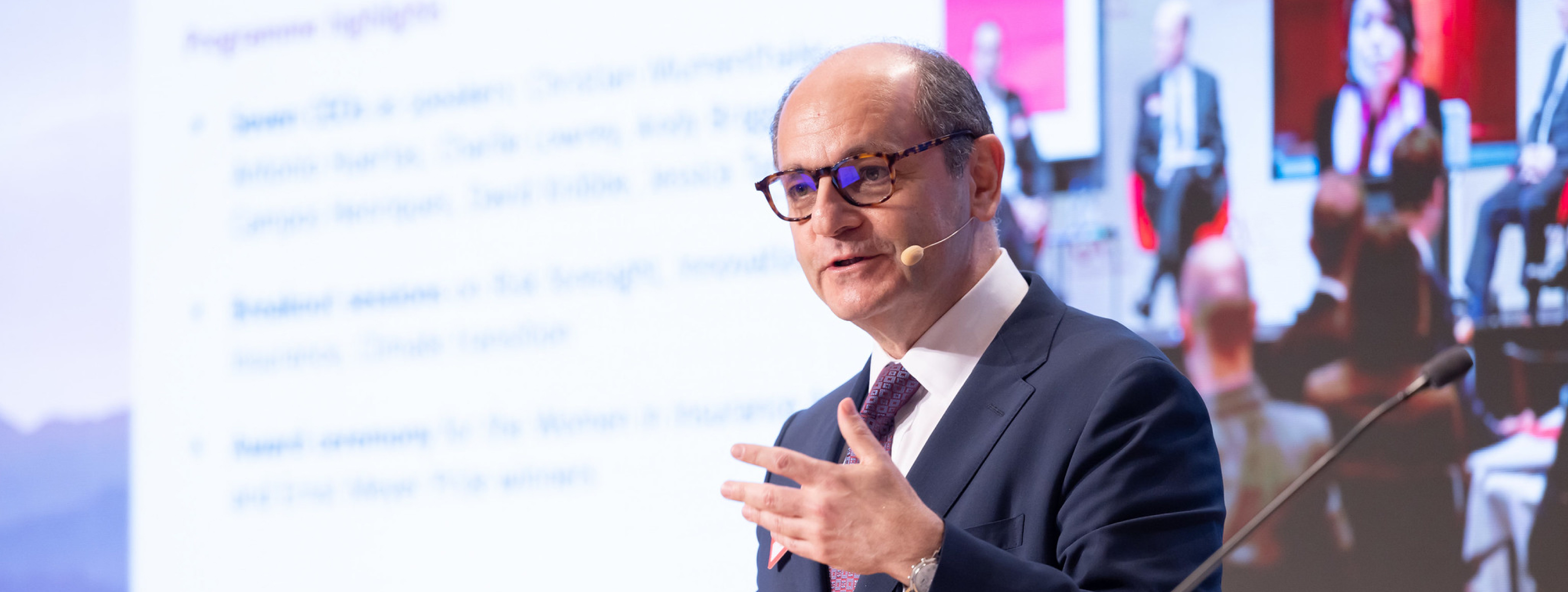 Jad Ariss, Managing Director, The Geneva Association
Jad Ariss, Managing Director, The Geneva Association
The Geneva Association focused on four main priorities in the past year:
- Completion of the 2022–23 research plan, including reports on the regulation of AI and the impact of climate change on health.
- Launch of the 2024–25 research agenda which involved the creation of two new work streams, ‘Macro and Geoeconomic Shifts’ and ‘Social and Financial Inclusion’, to reflect the changing global landscape and the industry's focus on reaching underserved communities.
- Delivering on the annual event programme, with a first-ever event held in China (Health & Ageing Conference 2023) and the inaugural in-person Digital Technologies Conference held in spring 2024 in Milan.
- Celebrating the organisation’s 50th anniversary with a special event in Zurich, which attracted over 500 participants as well as a number of member CEOs.
The Geneva Association remains committed to addressing topics that are relevant for society and the insurance industry. Through its research and events, the organisation will continue to provide valuable insights and foster collaboration among insurers and our broader set of stakeholders.
Keynote speech: Managing Risk in an Unstable World
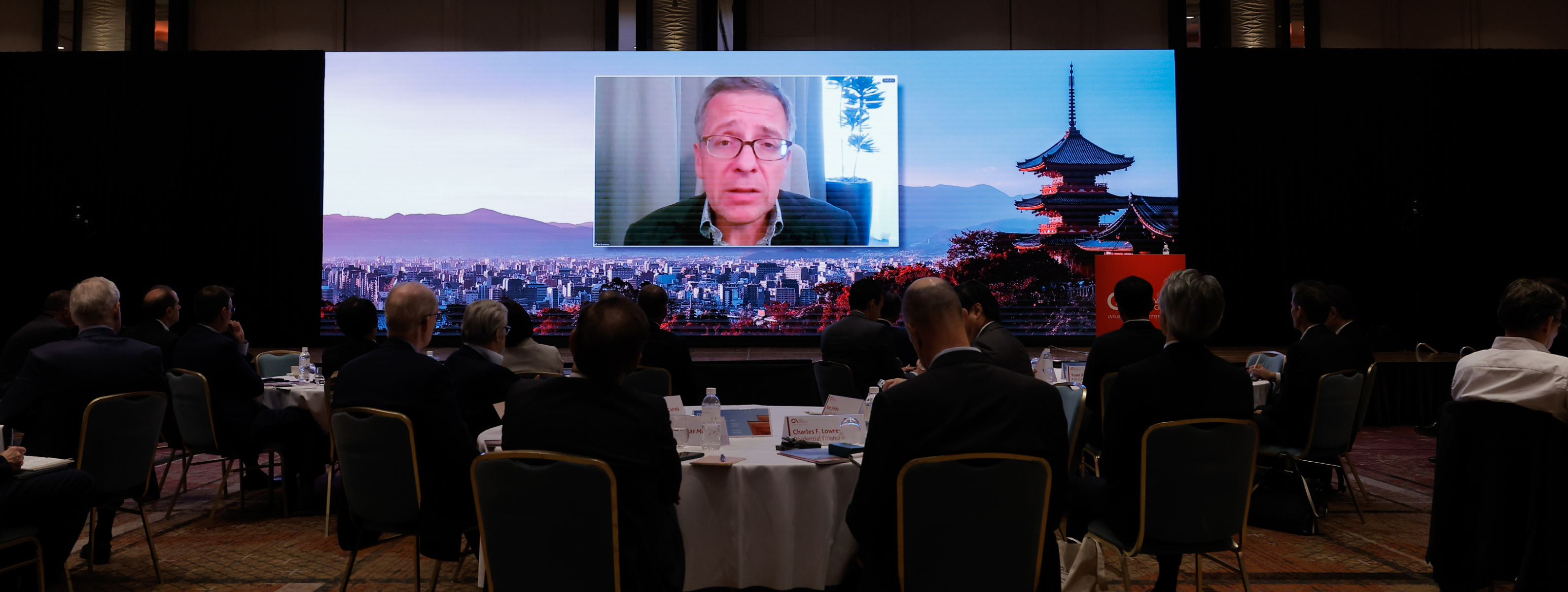 Ian Bremmer, President & Founder, Eurasia Group and GZERO Media
Ian Bremmer, President & Founder, Eurasia Group and GZERO Media
The world is in a dangerous situation geopolitically, with significant implications for trade and commerce. This is epitomised by three ‘hot spot’ areas which seem unlikely to be rapidly resolved and only add to near-term uncertainty:
- Russian-Ukraine war. The status quo is being maintained by progressively more expansive NATO support, but this is not sustainable over the long term.
- Israel-Hamas conflict. There is no appetite for peace from the main protagonists; both sides seem intent on escalation.
- Growing U.S. domestic political tensions. Regardless of the result of the upcoming presidential election, the U.S. is socially divided and vulnerable to civil unrest.
The sources of geopolitical instability run deeper. Ongoing structural drivers mean geopolitical risks will remain elevated for at least a decade. First, Russia, which blames the West for its decline, has moved closer to rogue nation states who have long sought to undermine western institutions and values. Second, while China has become more integrated into the international economy, it remains an authoritarian regime and suspicious of democratic capitalism. Third, millions of citizens across the world have grown resentful of their ruling elites, which is fuelling support for anti-establishment political parties.
There are grounds for hope, however, that a new ‘cold war’ (let alone a global kinetic war) can be avoided, not least because relations between the U.S. and China are better managed than before. Technological transformation, from the net-zero transition to the adoption of AI, will foster international alliances over fragmentation and hostility. Diplomatic channels also will likely remain effective in managing cross-country tensions and avoiding outright conflict. This includes the stabilising influence of countries like India who seek to build bridges between opposing country blocs.
Panel: A New World Economic Order – The emerging possibility
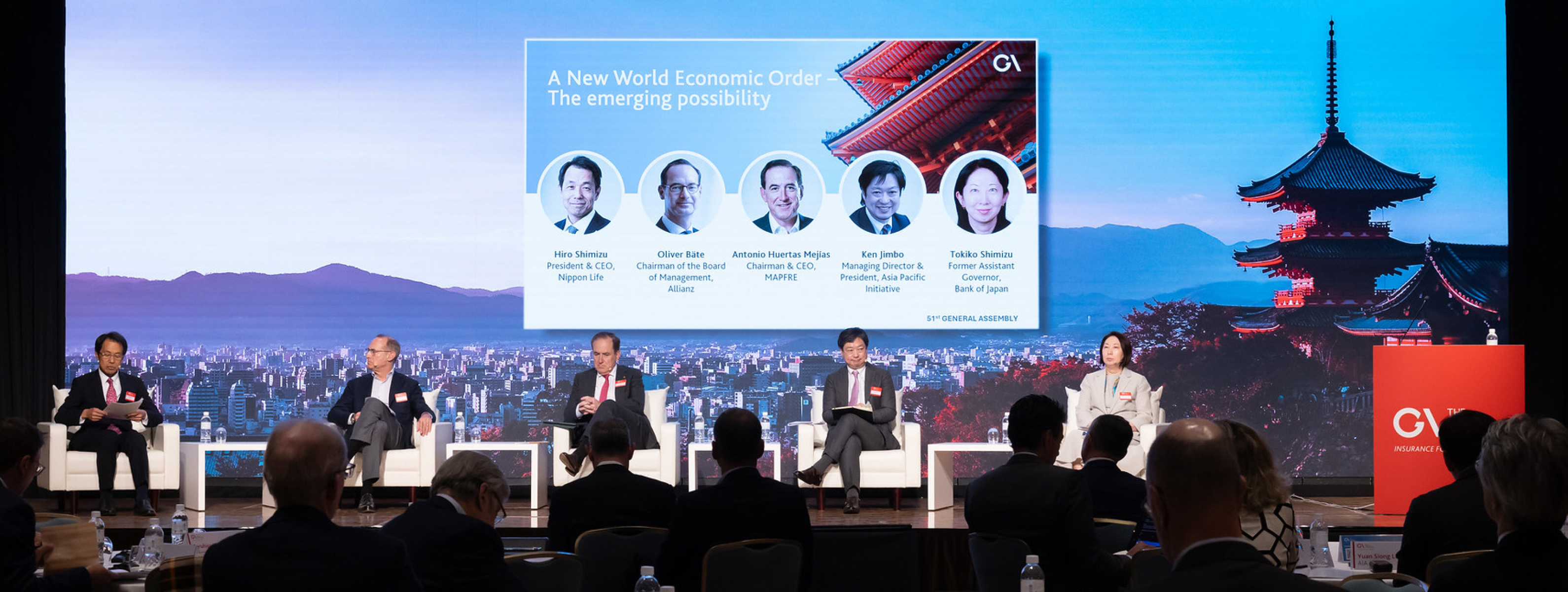 Hiro Shimizu, President & CEO, Nippon Life; Oliver Bäte, Chairman of the Board of Management, Allianz; Antonio Huertas Mejías, Chairman & CEO, MAPFRE; Ken Jimbo, Managing Director & President, Asia Pacific Initiative; Tokiko Shimizu, former Assistant Governor, Bank of Japan
Hiro Shimizu, President & CEO, Nippon Life; Oliver Bäte, Chairman of the Board of Management, Allianz; Antonio Huertas Mejías, Chairman & CEO, MAPFRE; Ken Jimbo, Managing Director & President, Asia Pacific Initiative; Tokiko Shimizu, former Assistant Governor, Bank of Japan
Geoeconomics – the interplay between geopolitics and international economics – is leading to increased fragmentation. Costly industrial policies, driven by national security and green-transition goals, have inflated public debt. Emerging economies have also seen significant increases in public debt, but many are keeping it under control compared to developed nations. However, inefficient tax systems and large underground economies challenge debt sustainability. The relationship between geoeconomics and growing public debt is crucial, as a country's debt management ability can influence its geopolitical role and economic security.
In this environment, the insurance industry can link short-term and long-term perspectives, providing stability in an uncertain world. Insurers control significant global financial flows and help mitigate tail risks. They can also assist commercial customers in identifying new opportunities as regulations and export controls shrink existing business avenues. For this contribution to materialise, the insurance industry needs a stronger voice in global economic discussions. Standard setters should reconsider financial reporting practices, such as moving away from quarterly reporting, to enable longer-term thinking.
Keynote speech: Kengo Kuma
 Kengo Kuma, Emeritus Professor of Architecture, University of Tokyo
Kengo Kuma, Emeritus Professor of Architecture, University of Tokyo
Harmony between nature and artifacts is important in urban design. The transition from traditional materials like wood to modern materials like concrete and steel in Japanese architecture has resulted in the loss of cultural and sustainable practices. A return to using local, natural materials as well as local craftsmanship can preserve cultural heritage and sustainability. Projects in Japan, China, Europe and America illustrate the successful application of these principles, demonstrating the potential for wood and other natural materials in modern architecture to create warm, intimate and environmentally friendly spaces. However, innovative uses of traditional materials and methods are needed to address contemporary environmental challenges and foster more human-centric urban environments.
Keynote speech: Key Issues of Financial Sector Policies
 Terushisa Kurita, Commissioner, Financial Services Agency (FSA)
Terushisa Kurita, Commissioner, Financial Services Agency (FSA)
Japanese government initiatives, such as the Assets Income Doubling Plan and the Action Program for Accelerating Corporate Governance Reform, aim to stimulate a virtuous cycle of growth by encouraging household investments and enhancing corporate governance.
The FSA is making substantial commitments to sustainable finance, a crucial area given the escalating impacts of climate change. This includes measures to improve corporate disclosure on sustainability, promote transition financing and foster impact investment. The FSA is actively working on creating guidelines and frameworks to support these initiatives, such as enhancing the Corporate Governance Code and forming the Impact Consortium to unify efforts across various stakeholders.
The insurance sector has a significant role to play in addressing societal challenges. As underwriters of risk and as institutional investors, insurers promote the mitigation of risks related to natural disasters, demographic changes and technological advancements. Through innovative insurance products, sustainable business models, and partnerships with the public sector, insurers will be better able to serve societal needs. The Geneva Association can play a pivotal role in fostering insurer partnerships to address global challenges.
Special address on climate change
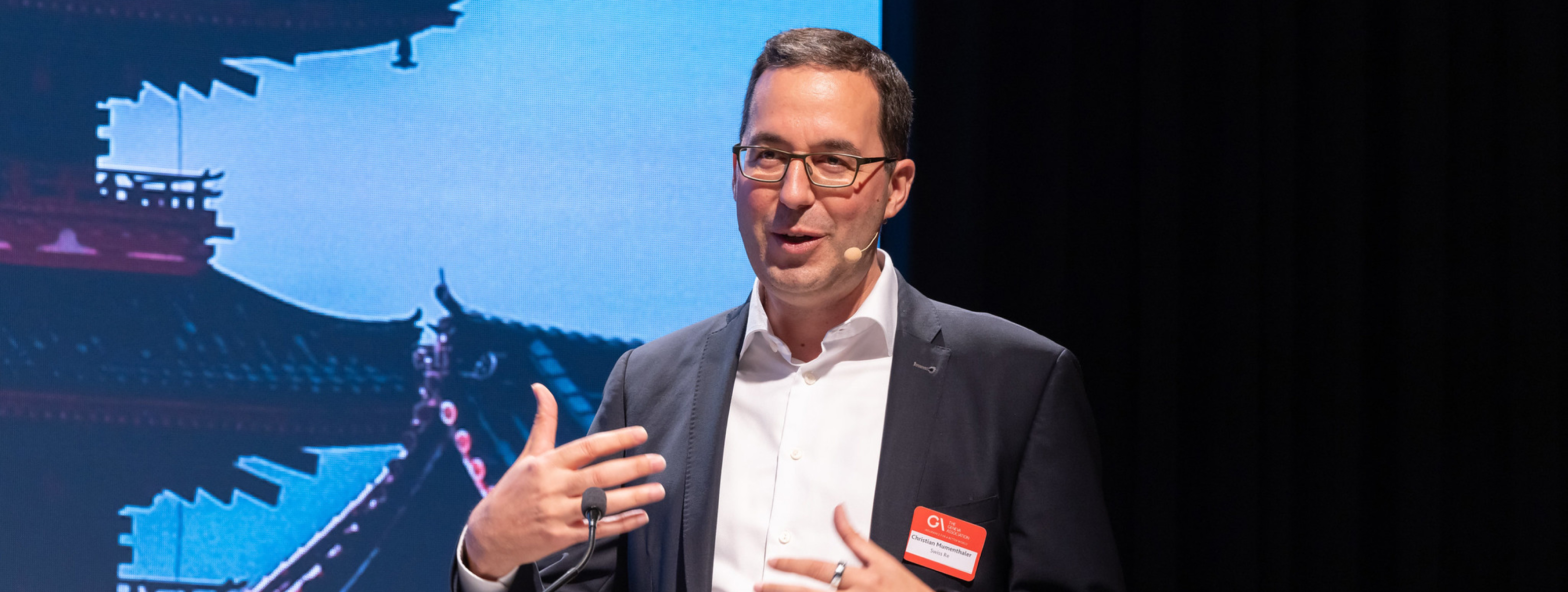 Christian Mumenthaler, former CEO, Swiss Re
Christian Mumenthaler, former CEO, Swiss Re
Net-zero emissions must be achieved by 2050 to limit global warming to 1.5°C. But the current trajectory suggests a 2.4°C rise, even if all government commitments are met. More drastic measures will therefore be needed to reach the target.
Available, cost-effective solutions – such as increasing efficiency in companies – can immediately reduce emissions. In many cases, this can be achieved without sacrificing profitability. Industries such as energy, steel and cement also need to be decarbonised. While green equivalents exist, they are currently more expensive and require significant overhauls of production processes. Companies in these sectors often operate on thin margins, making the transition challenging. Collaboration across value chains and sectors will therefore be crucial.
A network effect whereby large companies push their entire supply chains towards net-zero emissions could also help. Initiatives like the First Movers Coalition demonstrate how, by committing to purchase greener products, leading companies can drive down the green premium, encouraging broader adoption and reducing costs over time.
Significant hurdles beyond financing, such as permitting and grid expansion, delay the deployment of renewable energy projects. The need for seasonal energy storage and technological advancements, like direct air capture of CO2, present additional challenges.
While achieving net-zero by 2050 may be unlikely, significant progress towards sustainable energy systems is expected. Insurers can make a significant contribution through their investments and underwriting.
Panel: Transition to Net Zero – Building a path to a low-carbon future
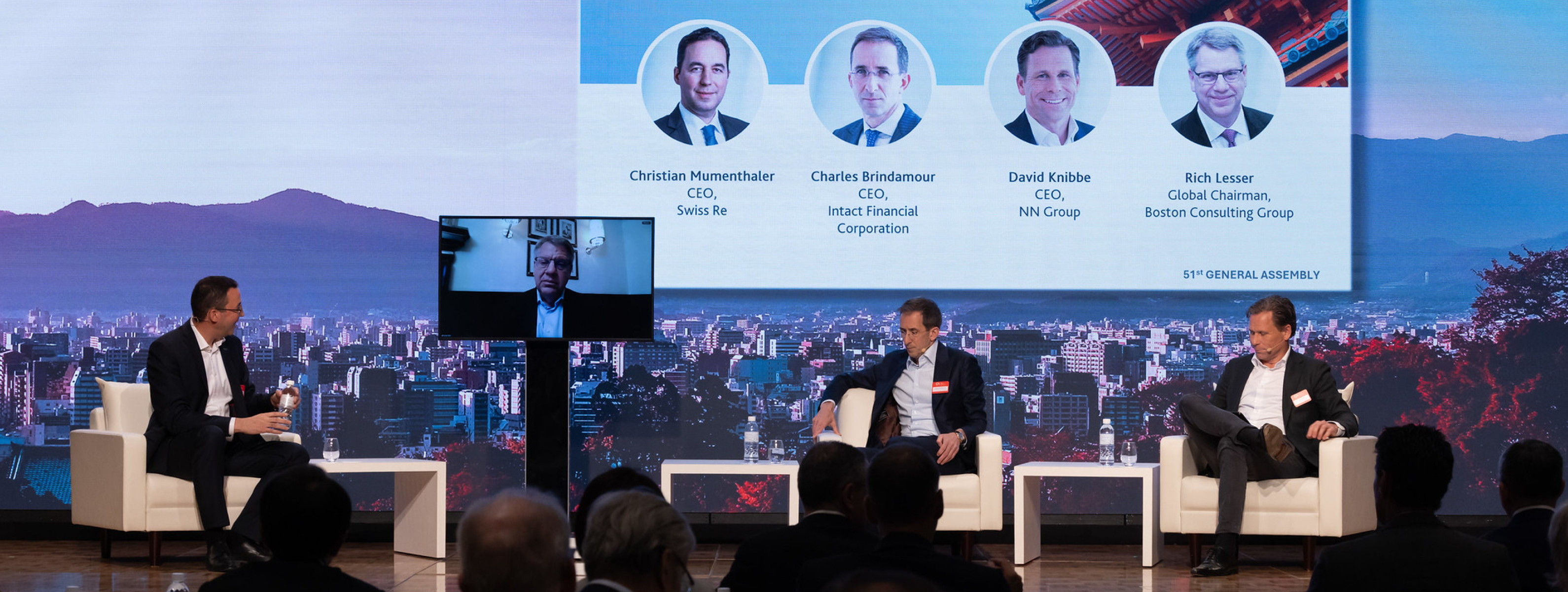 Christian Mumenthaler, former CEO, Swiss Re; Rich Lesser, Global Chairman, Boston Consulting Group; Charles Brindamour, CEO, Intact Financial Corporation; David Knibbe, CEO, NN Group
Christian Mumenthaler, former CEO, Swiss Re; Rich Lesser, Global Chairman, Boston Consulting Group; Charles Brindamour, CEO, Intact Financial Corporation; David Knibbe, CEO, NN Group
Limiting global warming to 1.5°C seems improbable, but the need for action is non-negotiable. The landscape of climate initiatives is evolving, and in our warming world, re/insurers can play a proactive role in promoting customer awareness and in facilitating sustainable transitions.
Technological advances, such as breakthroughs in industrial carbon capture, and successful global policy initiatives have driven decarbonisation faster than anticipated. There is still an urgency to accelerate progress by advocating for effective carbon pricing, regulatory enhancements, and transparent climate-action metrics.
Rising societal expectations, in large part, are driving the business community’s increasing engagement in climate initiatives. Major corporate players have made substantial climate-action commitments, but gaps and hurdles remain: integration of climate strategies, navigating the complex political landscape in the U.S. Additionally, SMEs in Europe and Japan, for example, have been slow to adopt climate measures due to litigation risks for companies setting ambitious targets.
While customer awareness is growing, willingness to pay a premium for sustainable products is lacking, complicating the economic case for green investments. In particular, the pace of investment in renewable energy has been sluggish, hindered by regulatory and permitting challenges.
Fatih Birol: Keynote address
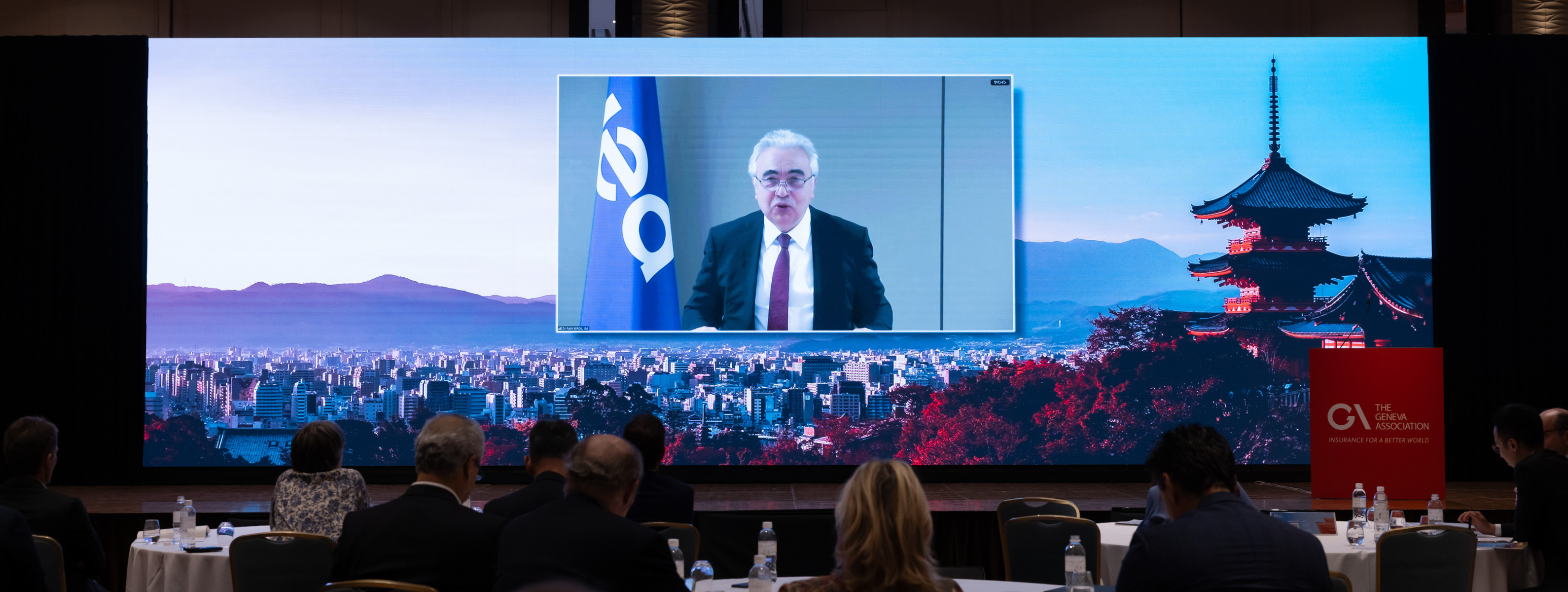 Fatih Birol, Executive Director, International Energy Agency
Fatih Birol, Executive Director, International Energy Agency
The shift towards clean energy is driven by ethical and climate concerns as well as economic factors and investment flows. Global energy investments in 2024 are expected to reach approximately USD 3 trillion, with USD 2 trillion allocated to clean energy and USD 1 trillion to fossil fuels. This split in favour of clean energy represents a significant shift from previous years. Solar energy is transforming the power sector globally, with investments in solar electricity production exceeding those in all other electricity generation technologies combined. Nuclear power is also experiencing a resurgence.
Despite these positive trends, there are two major concerns. First, the current pace of clean energy investment is still insufficient to meet the climate targets of the Paris Agreement. Second, there is a significant disparity in clean energy investments between advanced economies (including China) and emerging and developing countries – the latter receive just 15% of investments despite making up two thirds of the global population. Mechanisms to de-risk investments in emerging and developing countries are needed, which will require support from advanced economies and international financial institutions. Addressing this investment gap is crucial for achieving global climate goals.
Keynote speech: Cultural Defense Theory: Soft power and diplomacy
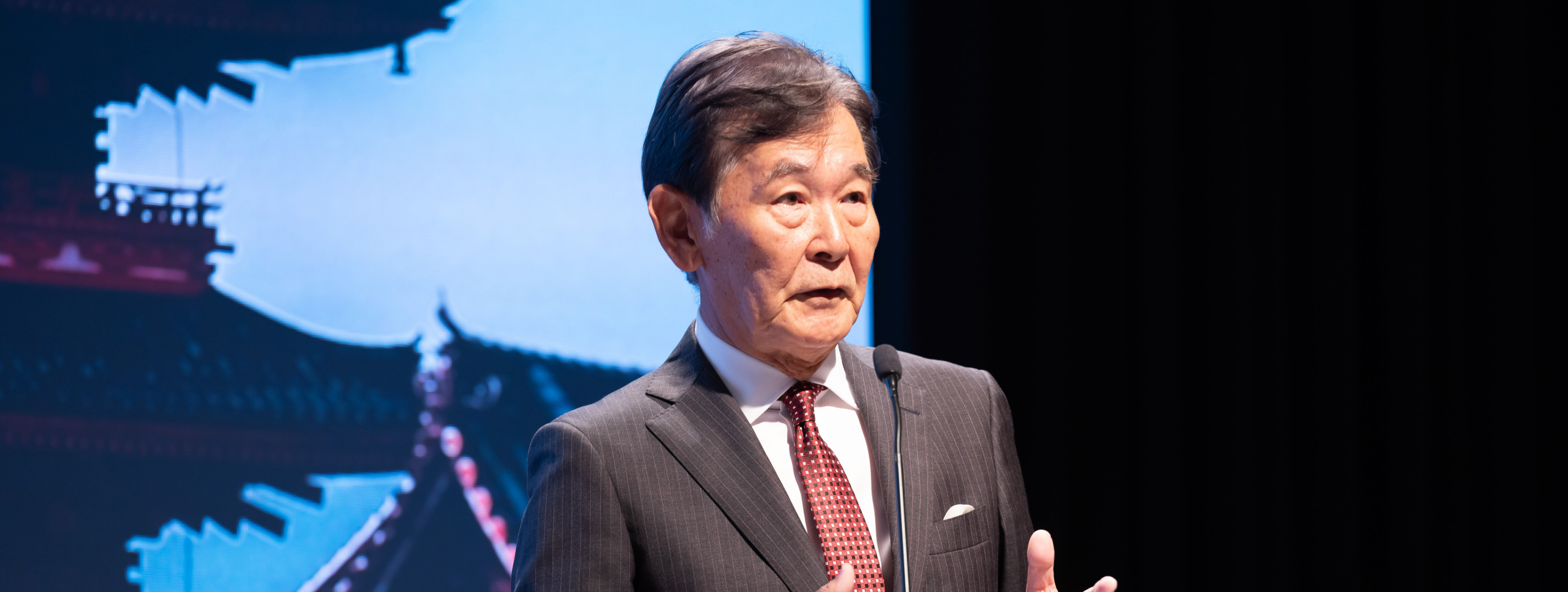 Shunichi Tokura, Commissioner for Cultural Affairs, Japan
Shunichi Tokura, Commissioner for Cultural Affairs, Japan
The significance of so-called ‘cultural diplomacy’ is increasingly recognised in today's interconnected world, where art and culture extend beyond national borders. Cultural assets can play a transformative role in international relations and significantly influence international perceptions and relationships; South Korea's global K-pop phenomenon, for example.
For Japan, moving its Agency for Cultural Affairs to Kyoto was a strategic decision. The relocation signifies a shift towards preserving and promoting Japan's cultural heritage as a cornerstone for fostering global understanding and cooperation. Especially given the nation's demographic and economic challenges, Japan's future lies in leveraging its rich cultural legacy.
In a historical context, Japan's longstanding appreciation for Western culture facilitated a smooth post-World War II transition. The musical opera Out of the Blue, which explores themes of love and reconciliation against the backdrop of the Nagasaki bombing, is a salient example of the power of culture.
Culture and art are unfortunately missing in the United Nations' Sustainable Development Goals (SDGs). An 18th SDG, emphasising the universal right to cultural access, would acknowledge the crucial role of art and culture in promoting emotional fulfillment and global harmony, underscoring their impact on human connections and societal resilience.
Panel: Towards a Better Longevity Society
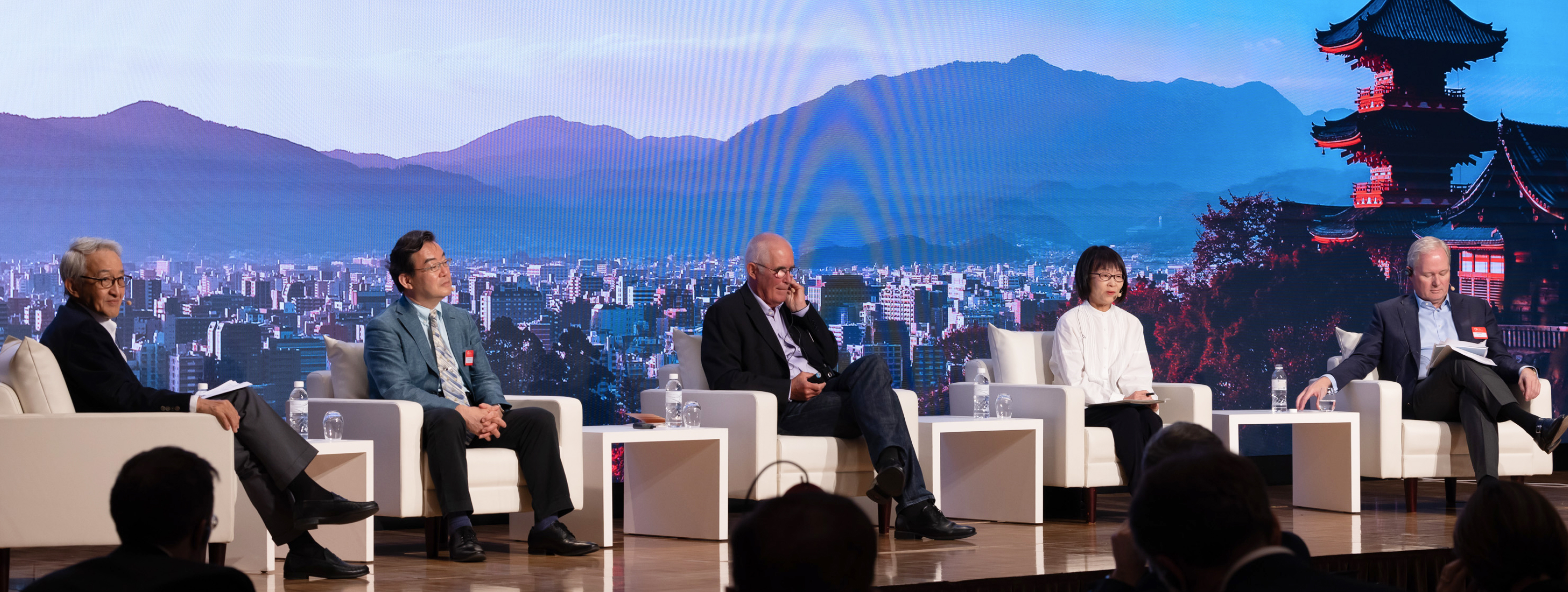 Tsuyoshi Nagano, former Chairman, Tokio Marine; Shin-ichiro Imai, Theodore and Bertha Bryan Distinguished Professor in Environmental Medicine, Washington University School of Medicine; Johan Auwerx, Professor, Swiss Federal Institute of Technology Lausanne; Shigeko Segawa, Journalist, The Asahi Shimbun; Lard Friese, CEO, Aegon
Tsuyoshi Nagano, former Chairman, Tokio Marine; Shin-ichiro Imai, Theodore and Bertha Bryan Distinguished Professor in Environmental Medicine, Washington University School of Medicine; Johan Auwerx, Professor, Swiss Federal Institute of Technology Lausanne; Shigeko Segawa, Journalist, The Asahi Shimbun; Lard Friese, CEO, Aegon
Anti-ageing breakthroughs are becoming a reality. Appropriate guardrails are needed for their implementation and equitable access to these technologies must be ensured. Tackling longevity-related societal challenges will also require broader systematic transformations including:
- A pivot towards preventing age-related decline rather than simply treating its symptoms.
- The use of technology like AI to read vast datasets and help with risk prevention and management.
- Greater focus on longevity literacy and advice.
- A rethink of the traditional three-phase life (education, work, retirement) to align with longer working lives.
- Strategies to tackle loneliness and encourage social connectedness and intergenerational parity.
Insurers will need to explore novel ways to support customers throughout extended lifespans – from the wealth-building years through the retirement spending phase. Solutions need to be comprehensive, addressing both the challenges and opportunities presented by increased human longevity.
Fireside chat: Ageing Society from an Anthropological Perspective and AI Today
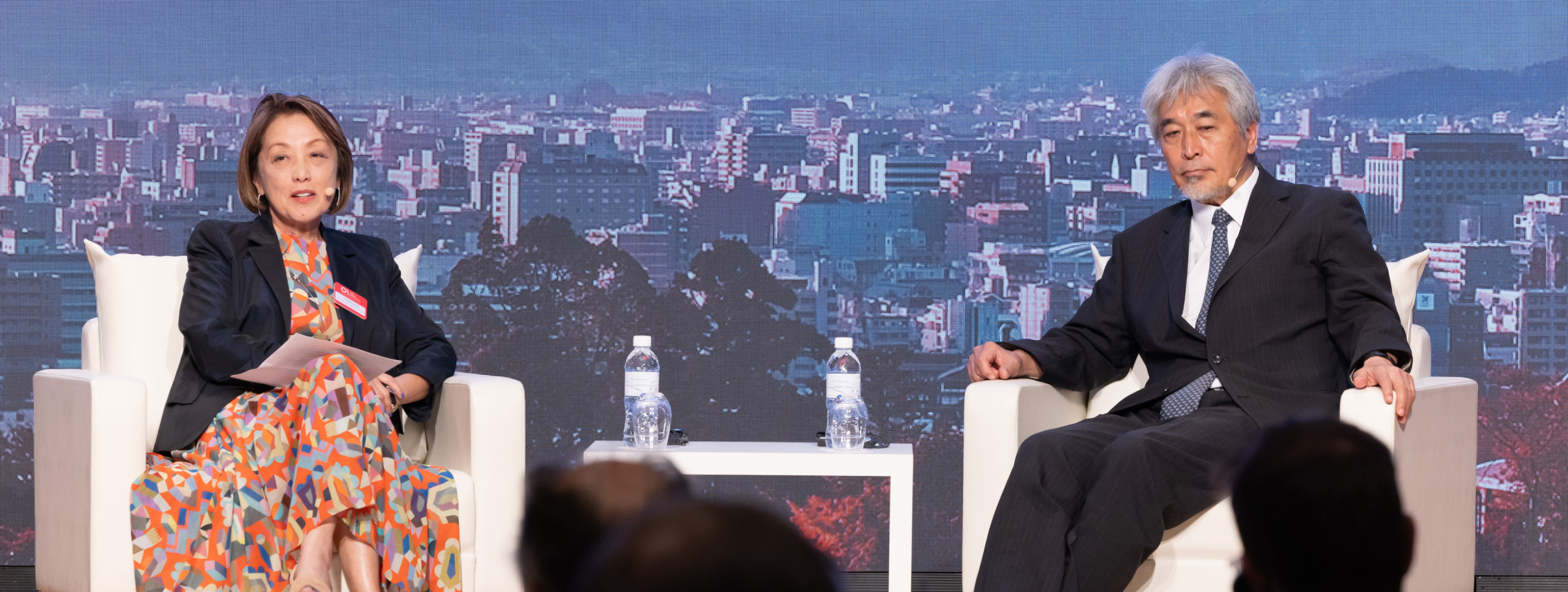 Sachiko Kuno, Co-founder, R-Tech Ueno and Sucampo; Juichi Yamagiwa, Director-General for Research, Institute for Humanity and Nature
Sachiko Kuno, Co-founder, R-Tech Ueno and Sucampo; Juichi Yamagiwa, Director-General for Research, Institute for Humanity and Nature
Ageing populations are facing new challenges. Despite their declining physical capabilities, the elderly will be expected to contribute more to the economy due to declining birth rates. Intergenerational relationships and societal expectations are changing rapidly. Traditionally, older generations made way for younger ones and cared for grandchildren. Now, they face a different reality where they will need to remain in the workplace much longer to support their extended lives.
Prioritising social cohesion, human connectedness and community building will be important. Creating a humane longevity economy will also require a rethink of the concept of productivity beyond just working hours. Elderly individuals could serve as intermediaries between generations, helping to bridge gaps and foster understanding. By reimagining the role of the elderly and focusing on building stronger communities, we can better address the challenges and opportunities presented by increasing longevity.
Special address on AI
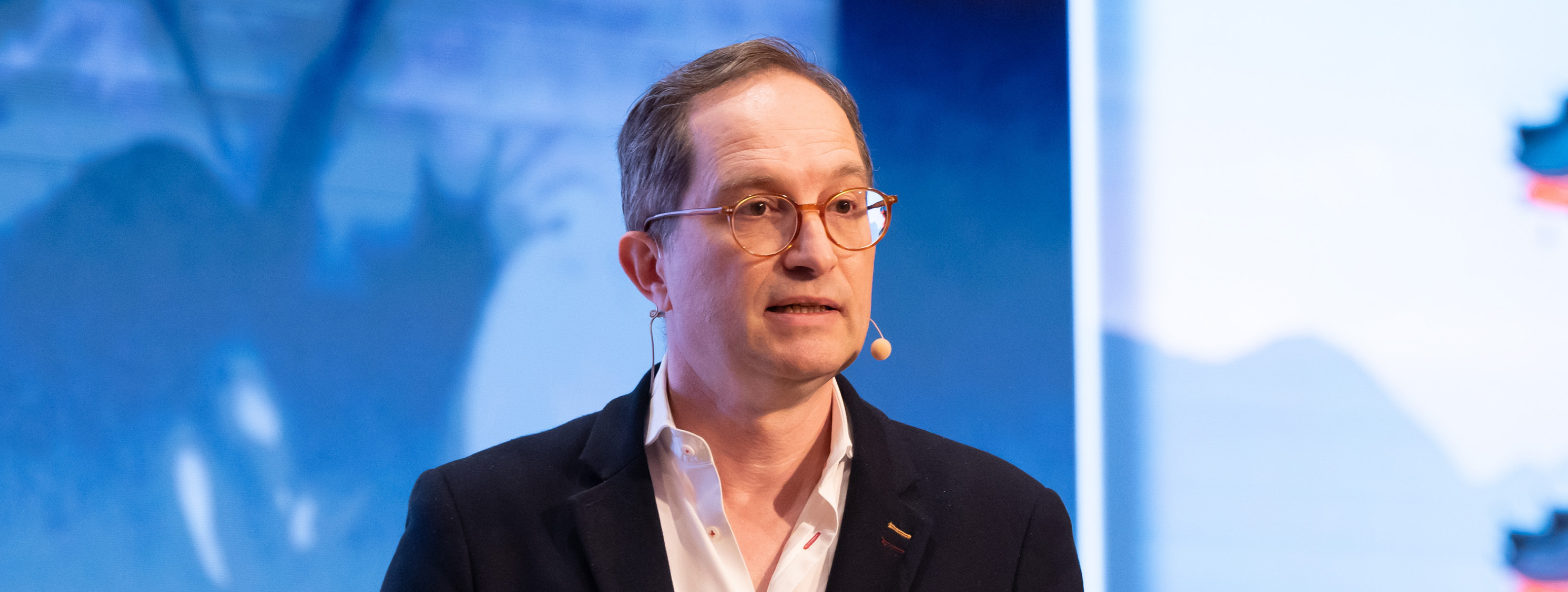 Peter Hinssen, Keynote Speaker & Author
Peter Hinssen, Keynote Speaker & Author
Digital technology, once novel, is now mainstream and profoundly impacts society and daily life. It is also impacting human behaviour, with people spending large amounts of time daily on platforms that are designed for addiction.
While cycles of technological evolution used to take decades, they now occur much faster, requiring pre-emptive innovation. While this opens up many new possibilities for companies, it is important to think about the potential consequences of such rapid change.
AI in particular has been adopted on a wide scale within a very short timeframe. These applications offer tremendous benefits, such as efficiency gains and the potential to enhance learning, but flaws and biases are also inherent in AI systems. It is crucial that this is taken into account and addressed to avoid problems further down the line.
To thrive in today’s world, insurers need to embrace change and continuously adapt and innovate. Data and AI can enhance insurance business models, but this will require insurers to proactively manage change and effectively unlock the potential within their companies.
Panel: The Rise of AI – Managing the social and economic trade-offs
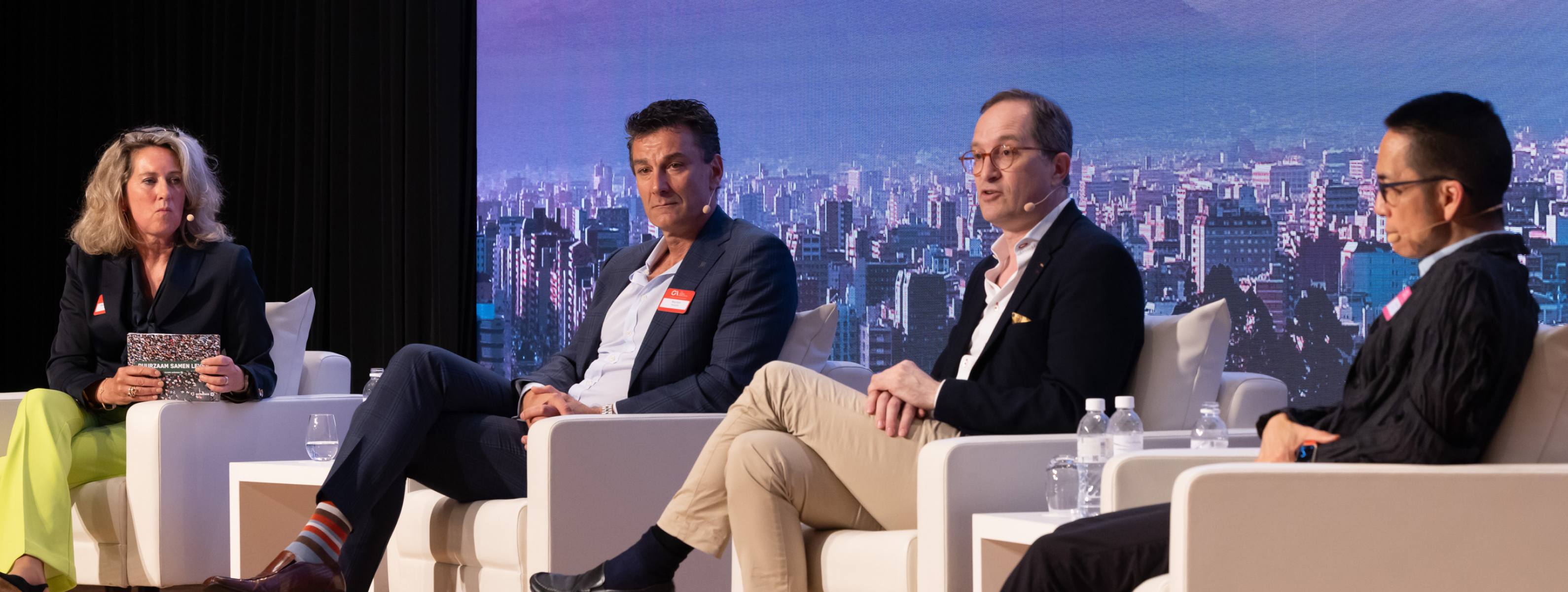 Bianca Tetteroo, CEO, Achmea; Roy Gori, CEO, Manulife; Peter Hinssen, Keynote Speaker & Author; John Maeda, Vice President of Design & AI, Microsoft
Bianca Tetteroo, CEO, Achmea; Roy Gori, CEO, Manulife; Peter Hinssen, Keynote Speaker & Author; John Maeda, Vice President of Design & AI, Microsoft
The rapid evolution of AI has taken the world by surprise. In insurance, for example, it is already being used in areas such as underwriting and pricing as well as assisting agents in customer interactions.
Concerns have been raised about how increasing reliance on AI may limit creativity. However, the rise of AI may also lead to a renaissance in human creativity, similar to the arts and crafts movement that came on the back of the industrial revolution.
There are also fears that AI will eventually replace human interaction in customer service because people tend to prefer easy and fast solutions over human contact. AI will likely be employed mainly for straightforward cases, which make up the majority, but human resources will still be necessary for more complicated, albeit less frequent, issues.
The insurance industry should strive to be a leader in AI rather than a follower, as time-to-market advantage is crucial. By investing in training AI on challenging tasks, companies can create robust systems that may help them reap significant long-term benefits.
Moderated interview with Esther Duflo
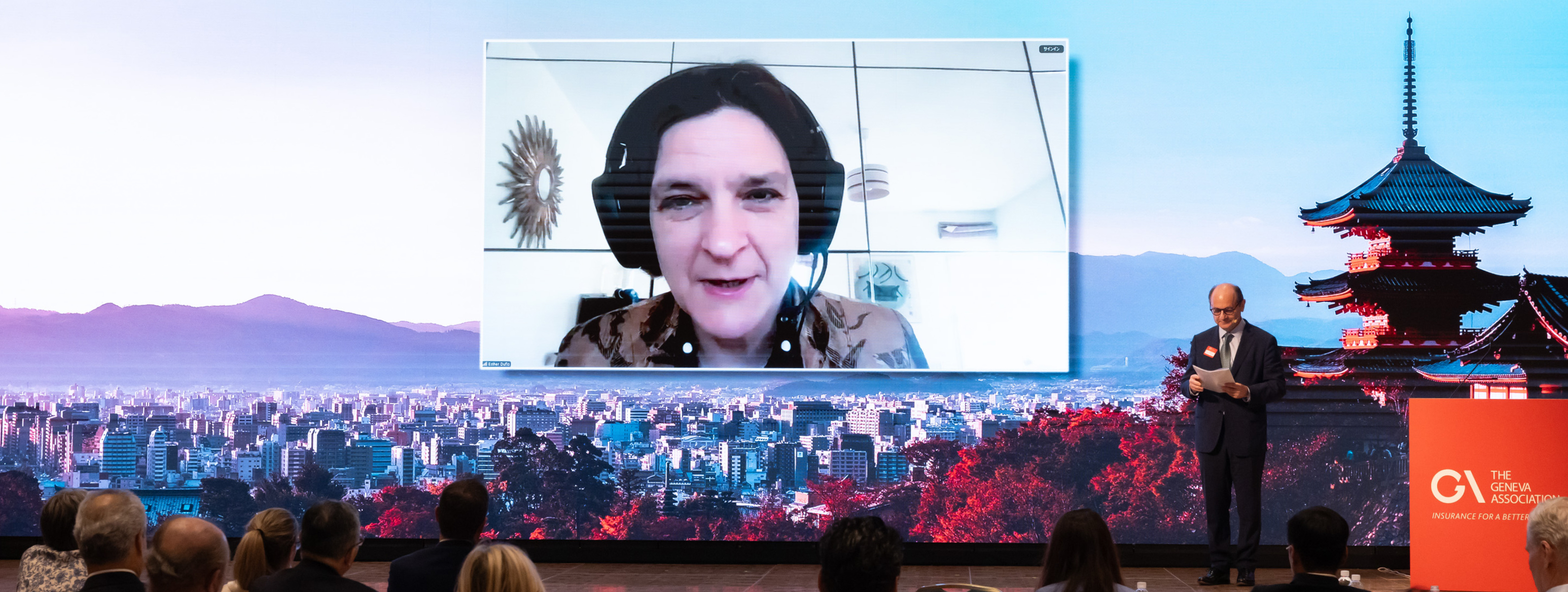 Esther Duflo, Nobel Prize in Economics 2019; Jad Ariss, Managing Director, The Geneva Association
Esther Duflo, Nobel Prize in Economics 2019; Jad Ariss, Managing Director, The Geneva Association
Poverty has decreased significantly in developing countries due to rapid economic growth, in particular in China and India, and policy efforts. However, automation and global competition have displaced many jobs, benefiting the wealthy while harming middle- and low-income earners in developed countries. Better institutional responses and a more progressive tax system are needed to tackle this challenge.
The impact of climate change on poorer countries caused by emissions from the Global North is disproportionate. A ‘polluter pays’ principle involving financial transfers from more polluting developed countries would assist poorer countries in their climate adaptation and mitigation efforts. New funding specifically for adaptation in poorer countries, separate from existing mitigation funds, is needed.
Insurers can play a significant role in mitigating social inequality by protecting vulnerable populations. This requires innovative insurance products and governments to step in as insurers of last resort in certain cases, especially in disaster scenarios. Trust, flexible payment options and education are crucial in promoting insurance among poor populations and, therefore, bridging the protection gap.
